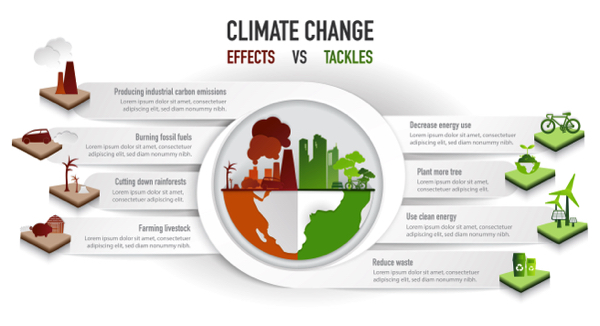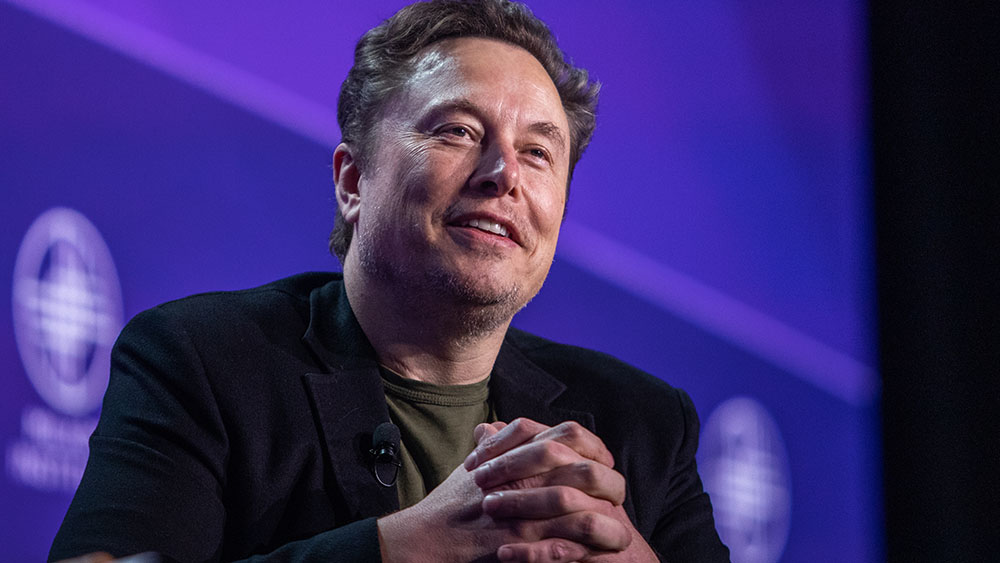The Great Green Rebranding: How climate activists are trading "save the planet" for "save your wallet"
By willowt // 2025-02-11
Tweet
Share
Copy

- The climate movement is shifting its messaging from moral imperatives to economic benefits, framing green energy as a source of jobs, prosperity and wealth creation.
- This rebranding raises concerns about the authenticity of the green energy narrative and whether it's merely a political maneuver to mask the sector's reliance on government subsidies and regulatory mandates.
- The promise of "green jobs" is questioned, with studies showing that for every green job created, multiple traditional jobs are lost due to increased energy costs and regulatory burdens.
- Government intervention in the energy sector through subsidies and mandates is argued to be inflationary and distortive, leading to higher costs for consumers.
- The green energy push is criticized as an economic illusion, built on government-driven policies rather than market-driven innovation, competition and affordability.
Desperate shift in messaging
The Associated Press article reveals a stark admission from climate leaders: the old “save the Earth” rhetoric isn’t cutting it anymore. UN Climate Executive Secretary Simon Stiell is quoted as saying that appealing to people’s “better angels” isn’t enough. Instead, green energy must now be framed in terms of self-interest. “In the great horserace of life... always back self-interest... what’s in it for me,” Stiell recounted a friend telling him. This shift is echoed by Jessie Stolark, executive director of the Carbon Capture Coalition, who noted, “The messaging with this current administration and with the Republicans is shifting more to that energy piece, the economic piece, the jobs piece. I think you want to meet an audience where they are, what’s important to them, what’s going to drive the conversation forward.” But this rebranding raises red flags. If green policies were truly the economic powerhouses their proponents claim, why do they require perpetual government subsidies and mandates? The reality is that wind, solar and electric vehicles (EVs) have been propped up by massive government spending, artificially low interest rates and regulatory favoritism.False promise of green jobs
One of the most frequently repeated claims is that the transition to renewable energy will create millions of jobs. Former U.S. Rep. Bob Inglis argues that conservatives should embrace renewables because they “create a lot of wealth, create a lot of jobs here in America.” But what kind of jobs? And at what cost? History has shown that government-funded green energy jobs are often temporary, low-paying and heavily subsidized. The collapse of Solyndra, a solar company that received over $500 million in federal funding, is a cautionary tale. More recently, Proterra, an electric bus manufacturer championed by the Biden administration, filed for bankruptcy despite extensive government backing. Moreover, studies have shown that for every “green job” created, multiple traditional jobs are lost due to increased energy costs and regulatory burdens. Germany’s Energiewende policy, which aggressively pursued renewable energy, led to skyrocketing electricity prices and job losses in heavy industry. The U.S. risks following in those same footsteps.Inflation and the cost of government-driven “green growth”
Green energy advocates love to talk about job creation, but they ignore the elephant in the room: the cost. Renewable energy projects require vast amounts of taxpayer funding, and as seen with massive spending packages like the Inflation Reduction Act, this kind of government largesse is inflationary. The AP report notes that industry leaders are lobbying for continued “crucial tax incentives” to keep their projects afloat. In plain terms, that means they need government support to remain viable. If these industries were truly the economic powerhouses they claim to be, why do they require perpetual subsidies? Government intervention in the energy sector distorts markets, leading to inefficiencies and higher costs for consumers. By contrast, the oil and gas industry, despite claims of being “subsidized,” largely operates on free-market principles and remains a global economic powerhouse.Political mirage disguised as economic policy
The shift from “saving the planet” to “economic prosperity” isn’t a genuine change in green energy’s effectiveness — it’s a marketing strategy. Faced with rising skepticism, policy failures and electoral backlash, climate advocates are simply rebranding their agenda to make it more politically palatable. Lisa Sachs, director of the Columbia Center on Sustainable Investment, admits, “It’s not a perfect strategy from a climate or social perspective, as the private sector cannot on its own fully decarbonize the economy... But under this administration, it’s probably our best bet for progress.” But no amount of messaging changes the fundamental flaws in green energy policy. A truly sustainable energy economy isn’t built on government subsidies, forced mandates and inflationary spending. It’s built on market-driven innovation, competition and affordability—principles that the green movement consistently ignores. The green energy push remains what it always has been: a government-driven economic illusion, one that shifts costs onto taxpayers while delivering little in the way of reliable, affordable energy. The more voters see through this sleight of hand, the harder it will be for the climate lobby to keep up the illusion. As Joanna Depledge, a climate historian at Cambridge University, aptly put it, “It’s time for a change... banging on about the catastrophic climate crisis is obviously doing no good at all.” The green rebranding may be clever, but it’s far from convincing. Voters deserve better than a shell game disguised as economic policy. Sources include: WattsUpWithThat.com MSN.com X.comTweet
Share
Copy
Tagged Under:
propaganda corruption conspiracy big government deception lies green living insanity job market climate alarmism government subsidies lunatics green power left cult Green New Deal climate agenda green tyranny economic riot
You Might Also Like
USAID funded Boko Haram slaughter of Christians in Nigeria
By News Editors // Share
The eclipse of education: $600M in wasteful DEI grants scrapped
By Willow Tohi // Share
The case for holding Norm Eisen accountable: Deep State’s legal mastermind exposed
By Willow Tohi // Share
Recent News
House GOP unveils $69 billion border security plan ahead of global events
By willowt // Share
Battleground North America: Canada votes on sovereignty amid U.S. tariff threats
By willowt // Share
Fennel for painful periods: A clinically proven drug alternative
By newseditors // Share











